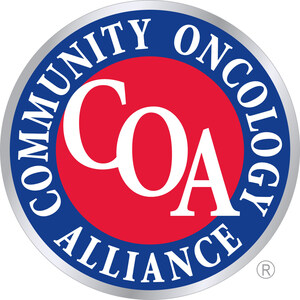Murky PBM "DIR Fees" are Increasing the Cost of Medicare Drugs for Patients and Taxpayers
New White Paper Reveals How Pharmacy Benefits Managers Use DIR Fees for Corporate Profit at the Expense of Patient Care
WASHINGTON, Feb. 1, 2017 /PRNewswire-USNewswire/ -- A new White Paper by the law firm of Frier Levitt, LLC examines the ongoing practice by Pharmacy Benefit Managers (PBMs) to increase corporate profits through murky "direct and indirect remuneration" fees (commonly known as "DIR Fees") charged to community oncology practices, as well as retail and specialty pharmacies ("Pharmacy Providers"). These fees, which have no basis in regulation or law, artificially inflate the costs paid by Medicare beneficiaries for prescription drugs, pushing them into the Medicare Part D "donut hole" faster, fueling rising drug prices, and ultimately adding to the burden on taxpayers.
The investigative White Paper, PBM DIR Fees Costing Medicare and Beneficiaries: Investigative White Paper on Background, Cost Impact, and Legal Issues, was commissioned by the Community Oncology Alliance (COA). It examines how PBMs are increasingly charging Pharmacy Providers a variety of murky DIR Fees—as much as 9% of the list price of cancer drugs and other expensive therapies—several months after the drugs have been dispensed to patients and Pharmacy Providers have been reimbursed for the sale.
Because of DIR Fees, patients are often forced to pay for drugs at a higher list price, while PBMs profit at their expense. The higher initial drug costs push patients into the "donut hole" faster, which means patients and Medicare pay more. There is little evidence that these retroactive DIR Fees are ever reported as "remuneration" to Medicare, further disguising actual drug costs. Ultimately, as the White Paper explains, this is fueling the growing gap between list and net prices, resulting in higher drug prices for all.
"DIR Fees charged by PBMs harm patient pocketbooks and care," said Jeff Vacirca, M.D., president of COA and a practicing medical oncologist and CEO of New York Cancer Specialists in Long Island, N.Y. "The fees drive the cost of vital but expensive cancer drugs even higher; increasing patient out-of-pocket costs and driving them in the 'donut hole,' where co-pays are higher. The costs also force too many patients to cut back or even abandon their treatment, jeopardizing their care and threatening their lives. Ultimately, these capricious fees also limit patient access to care by placing a financial burden on cancer care providers who are being strong-armed into paying up to a 9% tax by PBM corporations. This has to stop."
The Centers for Medicare & Medicaid Services (CMS) estimates that more than 25% of all Part D participants in the "donut hole" coverage gap will discontinue prescription drug regimens because of the much higher out-of-pocket costs they face. Ultimately, this disruption translates into poor outcomes, which costs Medicare money in the form of more enrollee doctor visits and costly, avoidable hospital admissions. The consequence of DIR Fees is that PBMs, once seen as the key to controlling drug costs, now have a drastic financial impact on patients, Pharmacy Providers, and the Medicare Part D program.
DIR originated as a legitimate concept intended to help CMS track rebates received by PBMs and Part D plans from drug manufacturers so that they can calculate reimbursement on the final, lowest price paid. However, PBMs have twisted the term into what are broadly known as "DIR Fees." These are a variety of different fees with different names, charged frequently as percentage of list price to Pharmacy Providers under the guise of "performance" or "quality." In January 2017, COA surveyed practices that provide pharmacy services to cancer patients, including community oncology and urology practices, about DIR Fees. The average amount in DIR Fees paid per practice was more than $82,000, with the highest amount reported as over $750,000.
"The dirty little secret is that PBMs—once seen as the key to controlling drug costs—are actually driving them up for everyone," said Ted Okon, executive director of COA. "As we begin to focus on the cost of drugs, part of the conversation must be DIR Fees, another example of a made-up, contrived tool used by PBMs to feed profits at the expense of patients, the Medicare program, and Pharmacy Providers. President Trump has vowed to tackle prescription drug costs—a good place to start is looking at what the PBMs are doing to fuel those costs."
The complete White Paper PBM DIR Fees Costing Medicare and Beneficiaries: Investigative White Paper on Background, Cost Impact, and Legal Issues is available at http://bit.ly/dirfeewp.
About the Community Oncology Alliance:
The Community Oncology Alliance (COA) is a non-profit organization dedicated solely to preserving and protecting access to community cancer care, where the majority of Americans with cancer are treated. COA leads community cancer clinics in navigating an increasingly challenging environment to provide efficiencies, patient advocacy, and proactive solutions to Congress and policy makers. To learn more, visit www.CommunityOncology.org.
SOURCE Community Oncology Alliance
Related Links
WANT YOUR COMPANY'S NEWS FEATURED ON PRNEWSWIRE.COM?
Newsrooms &
Influencers
Digital Media
Outlets
Journalists
Opted In





Share this article